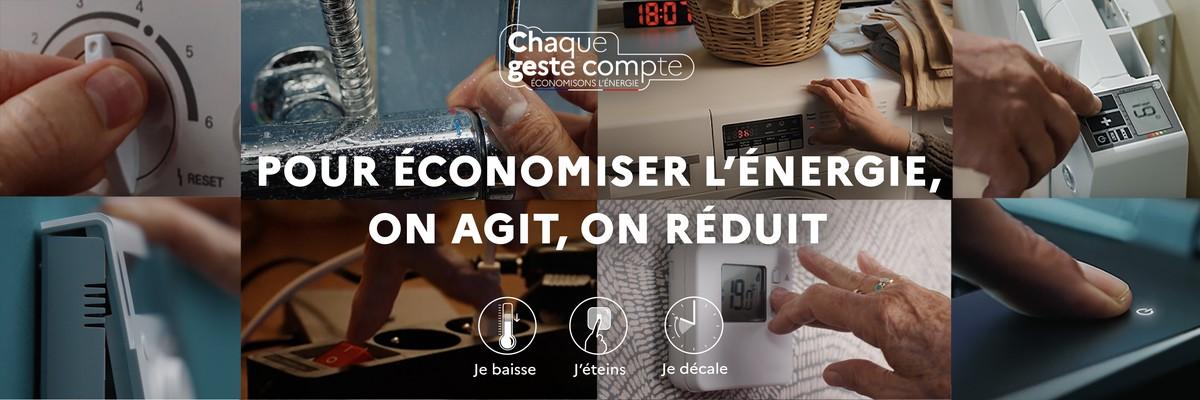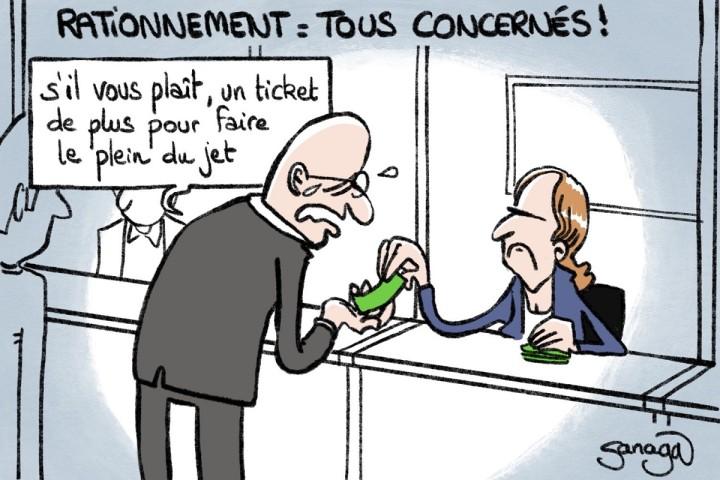By Lisa Bensoussan,
A year ago, France found itself at the crossroads of an energy crisis exacerbated by the closure of Russian gas pipelines and maintenance issues with its nuclear power plants. President Emmanuel Macron responded by introducing the concept of “sobriété énergétique” or “energy sobriety,” calling for a 10% reduction in energy consumption within two years. A year later, it’s time to evaluate the impact of this uniquely French concept, how it has evolved, and what the future holds for it.
Unlike the more commonly discussed idea of energy efficiency, which focuses on doing more with less energy, “sobriété énergétique” aims to reduce energy demand altogether. This French concept has been a cornerstone of the country’s decarbonization strategy, setting it apart from other European nations. While energy efficiency might involve replacing a gasoline car with an electric one, energy sobriety would advocate for using a bicycle instead. The French approach to implementing energy sobriety involves a bottom-up process. Each stakeholder—be it public administration, companies, or civil society—is asked to assess their energy consumption and report it to the government. This is in stark contrast to a one-size-fits-all approach, making it a uniquely French “method,” as described by the cabinet of the Minister of Energy.

The concept of “sobriété énergétique” has gained significant traction over the past year. Initially introduced as an emergency response to the energy crisis, it has evolved into a long-term focus in decarbonization policies. A parliamentary report by the Office for the Evaluation of Scientific and Technological Choices (Opecst) even described it as the most crucial pillar of ecological transition. The government’s sobriety plan, introduced in October 2022, exceeded expectations. French citizens reduced their overall consumption of gas and electricity by 12% during the winter of 2022, helping to avoid energy shortages. However, the government’s measures, such as public service announcements and encouraging companies to heat offices to 19°C, are seen as insufficient for inducing profound lifestyle changes.

a long term plan, © Image source: lejdd.fr
While the concept has been well-received, it has also faced challenges. The most significant is the need for a more comprehensive and systematic approach. Individual actions, though valuable, are not enough to achieve the ambitious targets set by the government. Moreover, businesses have faced exorbitant electricity costs, leading some to temporarily shut down. While “sobriété énergétique” has been lauded for its focus on sustainability, it has also been criticized for disproportionately putting pressure on the general population and small businesses. The concept could be more equitable if it focused on larger corporations and high-energy-consuming individuals, such as those using private jets. This perspective argues for a more targeted approach that holds the primary contributors to energy consumption and emissions accountable. The concept of “sobriété énergétique” remains relatively misunderstood in other European capitals. While the European Commission supports the integration of the concept into European policies, it often lacks specific guidelines to achieve these objectives. France, therefore, has a form of “political leadership” in this area, with a level of technical and administrative appropriation of the concept not yet seen in other EU countries.

segments of society. The sign mockingly asks for a ‘ticket to fill up the jet’ Image source: reporterre.net
As the concept matures, it is likely to become more integrated into both national and potentially European policies. The French government is already looking at practical steps for implementing energy sobriety in various sectors like construction, industry, and public lighting. On a European level, projects like FULFILL, funded by the EU, aim to inform European policymakers about energy sobriety and its implementation levers. A year after its introduction, “sobriété énergétique” has proven to be more than just a crisis management tool; it has become a long-term strategy for sustainable living. While there are challenges to be addressed, the concept holds promise for a more sustainable future, not just for France but potentially for Europe as a whole. However, for it to be truly effective and equitable, it may need to shift its focus towards larger contributors to energy consumption, thereby making it not just a technical solution but also a more balanced societal approach.
References
- ‘Sobriété énergétique : « Un pilier essentiel, sinon le premier, de la transition
écologique », selon un rapport parlementaire’ by Louis Mollier-Sabet, Public Sénat. Available here - ‘Comment la sobriété énergétique est devenue « incontournable » pour le
gouvernement’ by Marine Godelier, La Tribune. Available here - ‘La sobriété énergétique, ce concept politique français encore incompris en Europe’
by Paul Messad, Euractiv. Available here




